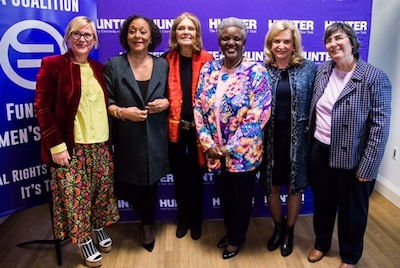Betty Dukes: The worker who took on Walmart

In 2001, Betty Dukes was a 51-year-old cashier at Walmart in Pittsburg, California. After years of watching her male co-workers getting higher pay and faster promotions, she became the lead plaintiff in one of the biggest class action sex discrimination lawsuits in U.S. history.
Earlier this month, Betty Dukes passed away at her home in California. When I met her for the first time just a few months ago, she shared with me her disappointment over the unjust outcome of the case and the challenging financial circumstances she was facing. Although the lower courts all found in her favor, in 2011, after more than ten years of litigation, the Supreme Court dismissed the case. Had the case been allowed to continue, the class action would have represented more than one million workers.
Justice Antonin Scalia wrote in the ruling that even if the statistical evidence established a pattern of lower pay and slower promotion for women in all of Walmart’s 3,400 stores, that would not be enough to certify the class of women working for Walmart and enable them to move forward together with a common claim of sex discrimination in a class action. Betty Dukes never got the day in court she so wanted, and as part of a subsequent settlement her employment with Walmart ended. Even after all that had happened, Betty Dukes had wanted to keep her job.
After the case was dismissed, Dukes continued speaking out for workplace fairness. In April, she spoke at a panel organized by Grove Fellows at Hunter College for Campus ERA Day, co-sponsored by the ERA Coalition in an effort to promote awareness of and support for the Equal Rights Amendment. As an advocate, Betty Dukes was passionate and compelling as ever, and she mesmerized the group of students who gathered for the panel and watched it via live stream across the country. “We were not able to accomplish what we set out to accomplish,” she said, “but I am still more determined now to stay focused on women’s issues because when women are strong, the family is strong, and society as a whole prospers.” She added, “ I won’t be around forever—none of us will—but I am determined to do what I can with regard to women’s equality.”
Like all companies, Walmart did not have an express policy of discrimination. The claim made by Betty Dukes and others was that local supervisors and store managers were given discretion to make salary and promotion decisions, and that their decisions were being made in a manner that discriminated against women. The corporate culture, referred to as “the Walmart way,” had a disparate impact on women, leaving them behind their male colleagues. The statistical evidence of this disparity (for example, women were about two-thirds of hourly employees but less than 14 percent of store managers), as well as anecdotal reports of discrimination from more than 100 female employees and expert testimony, were all, according to Justice Scalia, “worlds away” from the proof required. Four of the Supreme Court justices dissented, including all three women justices then on the court.
At the time of the lawsuit, Betty Dukes told a journalist, “I’m just not one to quit… I want justice for every woman past and present that has been discriminated against.” Betty Dukes was a champion—a David who took on Goliath. She believed in justice, even though she couldn’t get it, and to her last days she continued to fight and inspired others to take up the fight for equality. Her spirit lives on, and we will honor her memory in our fight for constitutional equality.
More articles by Category: Economy
More articles by Tag: Women's leadership



























